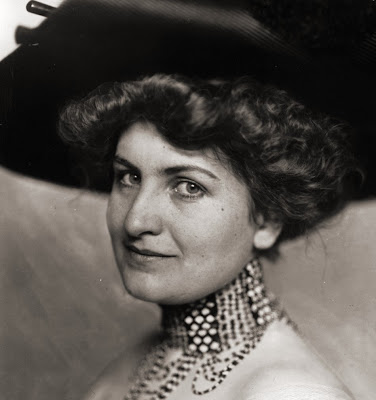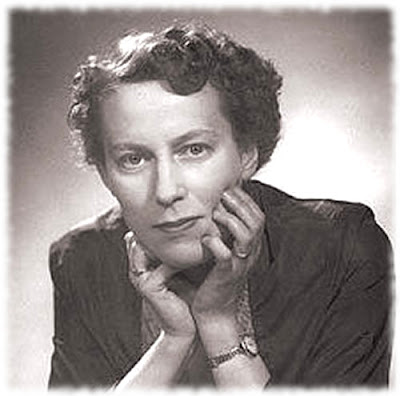A neglected 20th century masterpiece
 Interviewer: "Did you think as you began to write the ninth symphony that it would be the last thing you wrote?"
Interviewer: "Did you think as you began to write the ninth symphony that it would be the last thing you wrote?"Sir Malcolm Arnold: "I was rather hoping it would be....(pause)...the piece is an amalgam of all my knowledge of humanity."
Interviewer: "It is a huge, bleak, finale isn't it?"
Sir Malcolm: (long pause) "....Yes...I wanted it to die away into infinity....."
These words are taken from the discussion between the conductor Andrew Penny and the composer Sir Malcolm Arnold which is included on Naxos' superb recording of his 9th Symphony. The symphony was written in a three week blaze of creativity in August 1986 as a birthday present for the composer's close friend, and carer, Anthony Day. Its composition followed five years of mental illness, and composing silence
Sir Malcolm's career started as an orchestral musician. He was Principal Trumpet for the London Philharmonic Orchestra until 1948 when he turned to full time composing. His musical output is prodigous. The published works include nine symphonies, several concertos (including works for written Benny Goodman, Julian Bream, Larry Adler and James Galway), two string quartets and much other chamber music, and the five sets of dances. But this extraordinary published opus does not include his film and TV music. 1957 for instance produced the 3rd Symphony, four other published works, and no fewer than six film scores, including the Oscar winning The Bridge on the River Kwai.
Inevitably though this phenomenal creative workload took its toll. There was a continuing battle with alcoholism, and recurring manic depressive episodes culminating in several stays in psychiatric hospitals. For seven years, including the period of composition of the 9th Symphony, Sir Malcolm was under the jurisdiction of the Court of Protection, established to protect and manage the financial affairs of those suffering from mental illness. The 83 year old Sir Malcolm now suffers from frontal-lobe dementia, and is largely housebound in Norfolk. He is tended tirelessly by Anthony Day, who welcomed me to their household to discuss a draft of this article. (The photograph above was taken at their house in 2001).
The 9th Symphony was composed in short score, and orchestrated when complete. The writing in the first movement is starkly simple and meditative, with page after page of virtually empty bars. But like late Picasso the work communicates huge emotions through a few sparse gestures. The symphony is in two halves. The first three movements form one, and include a typically Arnold scherzo. There is minimal thematic development, and considerable use of repetition and sequential structures in the first movement. In the second a motif is played on the bassoon, and is then repeated sixteen times as it is covered by different instruments.
The fourth movement, which is almost as long as the first three, forms the second half. The sombre final lento pays homage to Mahler's 9th Symphony, but then moves beyond it into an ascetic world of its own. There is very little conventional harmony in this final movement, the listener is kept waiting more than twenty minutes for the resolution of the final D major chord that ends the work. The lento dispenses with the conventions of symphonic form, and returns to elemental techniques.
Sir Malcolm Arnold's 9th Symphony is by any measure an extraordinary work. Parts look unfinished on paper. It is written entirely in two parts, and this creates the impression that the composer has forgotten how to write harmony. The writing for a large orchestra is equally extraordinary. The second trumpet plays in just twenty of the lento's three hundred and twenty-seven bars. The piccolo and trumpet are silent throught the twenty-three minutes of the last movement, only to play the final note.
When the 9th Symphony was announced the musical establishment was expecting another 'classic' Malcolm Arnold  work, and they were sorely disappointed by the manuscript. Arnold's editor at Faber Music, the very experienced Donald Mitchell, was dismayed by the sparse scoring. So were other Arnold champions who were asked to pass judgement. The BBC music editor and Arnold supporter, Edwin Roxburgh, commented on its 'strange kind of simplicity.'
work, and they were sorely disappointed by the manuscript. Arnold's editor at Faber Music, the very experienced Donald Mitchell, was dismayed by the sparse scoring. So were other Arnold champions who were asked to pass judgement. The BBC music editor and Arnold supporter, Edwin Roxburgh, commented on its 'strange kind of simplicity.'
These negative reactions meant that the score remained in manuscript for years, despite vigorous advocacy from Sir Charles Groves and Howard Blake. Finally came publication, and excellent recordings from Naxos, Chandos and Conifer. The full score is now available from Chester Novello who bought the rights from Faber for just £500.
On paper the 9th Symphony may have looked like a bizarre mixture of juvenilia and mischief making, but in performance the work is pure magic. It has many of the unsung qualities of Shostakovich's 15th Symphony. It is a rite of passage. Not from youth to maturity. But from the mature Arnold, to a new and highly economical musical language. It is tonally accesible, but compositionally innovative. Above all it is an important work. A letter from Howard Blake to Arnold's agent Georgina Ivor sums it up beautifully:
"You've got to get this work performed, Georgina! It's not like his other works. It's very sparse and meditative, but it will work fine. It should be played! If nobody will do it, it's the sort of thing you could do in the Roundhouse and have young people all sitting on the floor meditating! You must put it on! It's a very significant work. It's from the deep inner recesses of Malcolm."
While discussing this article with me Anthony Day said Sir Malcolm (portrait by June Mendoza below) was 'heartbroken' by the poor reception accorded to the work. The story of its neglect is a graphic reminder of how difficult it is to achieve publication and acceptance for a contemporary symphony. Although technically innovative it hardly represents the extreme avant garde. It calls for large forces, but they are by no means exotic. Is one of the problems that the symphony is now considered a defunct form by the musical opinion formers?
Few contemporary composers can offer a CV to match Sir Malcolm's. Yet still the 9th Symphony specifically, and the Arnold oeuvre generally, is neglected. Is the problem the perennial one that the musical establishment cannot reconcile popularity with artistic merit? The BBC has been a staunch champions of Arnold's music in the past, but in recent years even this has waned. The last two Proms performances of his works were of film music - the Sound Barrier and St Trinian's suites. It is now more than ten years since one of his symphonies was performed at the Proms - the 2nd in 1994 to be precise. The 9th has never had a Proms performance, although it has received two broadcast performances since its composition.
In 2006 Sir Malcolm celebrates his 85th birthday. His music is a very rich seam that has still not been fully mined. Surely his 85th anniversary year is the appropriate time for the 9th Symphony, the neglected 20th century masterpiece, and his other works to be given the prominence they deserve?
Sir Malcolm Arnold resources:
* The music of Sir Malcolm is well served on CD. There are a number of recordings conducted by the composer. The nine symphonies have been recorded by Andrew Penny, Richard Hickox/Rumon Gamba, and Vernon Handley for Naxos, Chandos and Conifer respectively.
* Sir Malcolm has his own web site. This has an excellent range of resources including a listing of all current recordings. It also includes a catalogue of his published works, and links to their publishers.
* Pier Burton-Page’s 1995 biography, Philharmonic Concerto: The Life and Music of Sir Malcolm Arnold, was for some time definitive. But time, and the publication of two other lives, has now relegated it to a  useful reference work. Recent years have brought two biographies which cover Sir Malcolm’s output up to, and beyond, the 9th Symphony. Paul R.W. Jackson’s slim volume The Life and Music of Sir Malcolm Arnold, The Brilliant and the Dark is strong on musical scholarship, but is too close to the subject to provide a totally objective survey. Most recent is Malcolm Arnold: Rogue Genius, co-authored by Anthony Meredith and Paul Harris. This is the most comprehensive biography, and as such should be considered the prime reference work. But be prepared for the unremittingly noir tone of the book. The detail of Sir Malcolm's struggles with his demons sometimes risks swamping the splendour of the musical output.
useful reference work. Recent years have brought two biographies which cover Sir Malcolm’s output up to, and beyond, the 9th Symphony. Paul R.W. Jackson’s slim volume The Life and Music of Sir Malcolm Arnold, The Brilliant and the Dark is strong on musical scholarship, but is too close to the subject to provide a totally objective survey. Most recent is Malcolm Arnold: Rogue Genius, co-authored by Anthony Meredith and Paul Harris. This is the most comprehensive biography, and as such should be considered the prime reference work. But be prepared for the unremittingly noir tone of the book. The detail of Sir Malcolm's struggles with his demons sometimes risks swamping the splendour of the musical output.
If you enjoyed this post take an overgrown path to Hildegard comes to Norwich via IRCAM and Darmstadt









Comments